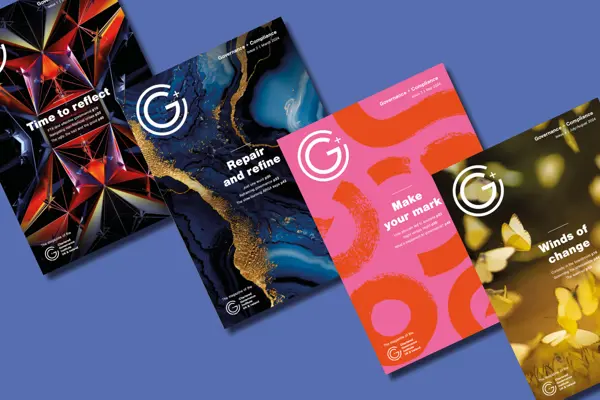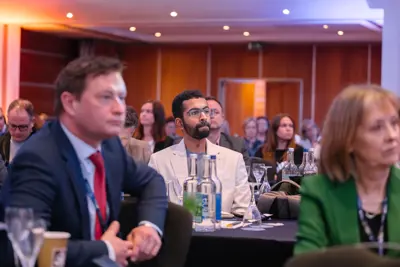Governance and Compliance is the leading magazine for people working in governance, risk and compliance, including company secretaries.
Governance and Compliance provides news, views and practical advice on the latest developments in governance. With articles published online weekly, G+C is the go-to source for the latest takes on:
- Environmental, social and governance (ESG) issues
- Organisational purpose and strategy
- Decision-making and board and committee management
- The influence of technology and AI on governance
- Equality, diversity and inclusion in leadership
- Risk, audit and compliance
- Regulatory changes.
Governance and Compliance is the only UK magazine aimed at company secretaries and governance professionals across the corporate, not-for-profit and public sectors. Find out more about the governance community through our interviews with industry experts and CGIUKI members.

Feature in G+C
G+C accepts welcomes article proposals, especially from CGIUKI members. To submit an article, read our author guidelines before completing the online article submission form.
Advertise in G+C
Reach an audience of engaged governance professionals by advertising in Governance and Compliance. Find out more on the G+C website.
Get in touch
Get in touch with the Editor with any feedback or comments on Governance and Compliance.


